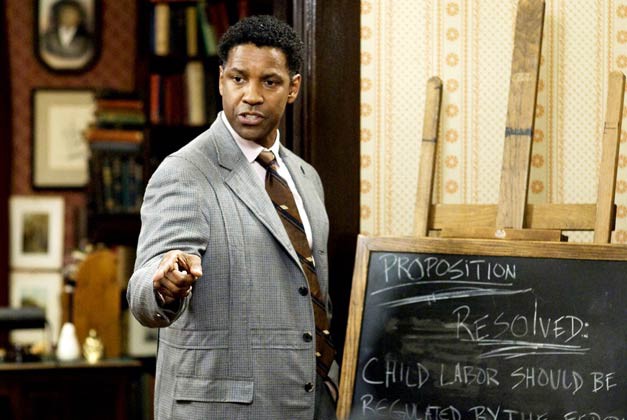Why Did You Or Didn’t You Become A Teacher?
Why Did You, Or Didn’t You, Become A Teacher?

My grandpa grew up poor on the Lower East Side during the Depression. He had several siblings and no bed. He had to haul coal in buckets from the basement of his tenement building to heat the apartment during the long winters.
What he did have was a good education that was free to him from start (Kindergarten) to finish (CUNY). When I asked him once why he thought that was, he told me that during the Depression, lots of intelligent, passionate, well-educated people couldn’t get jobs in their chosen fields, so they went into teaching. New York’s public schools were over-saturated with talent, and the children, even the ones with no resources, benefited.
There are lots more options nowadays for college graduates, especially with the economy improving, and a lot more challenges for people who do decide to be teachers, including low wages, bureaucracy, and constantly shifting federal standards. So it’s heartening when the news holds up a very public example of an educator like Tiffany Anderson in Jennings, Missouri, who is changing lives in her working-class community.
When Superintendent Tiffany Anderson arrived here 3 1/2 years ago, she was determined to clear the barriers that so often keep poor kids from learning. And her approach has helped fuel a dramatic turnaround in Jennings, which has long been among the lowest-performing school districts in Missouri.
“Schools can do so much to really impact poverty,” Anderson said. “Some people think if you do all this other stuff, it takes away from focusing on instruction, when really it ensures that you can take kids further academically.”
Public education has long felt like a small and fruitless weapon against this town’s generational poverty. But that’s starting to change. Academic achievement, attendance and high school graduation rates have improved since Anderson’s arrival, and, this month, state officials announced that as a result of the improvements, Jennings had reached full accreditation for the first time in more than a decade.
I hope that the MacArthur Foundation gives Anderson a genius award. Just think what she could do with it.
There also is a new academic intensity in Jennings: Anderson has launched Saturday school, a college-prep program that offers an accelerated curriculum beginning in sixth grade, and a commitment to paying for college courses so students can earn an associate’s degree before they leave high school.
Anderson restored music, dance and drama programs that had been cut, as they so often are in high-poverty schools, finding the money for those and other innovations by closing two half-empty schools, cutting expensive administrative positions and welcoming new grants and a tide of philanthropic contributions. The district was running a deficit of $2 million before Anderson arrived and balanced the budget.
This, a quote from Anderson, is my favorite line in the article: “‘We need to have the urgency for other people’s children that we have for our children.’”
Though Anderson seems to have boundless energy, it’s matched by a positivity that works on inspiring people, rather than shaming them. And that approach seems to be working. I can imagine working for someone like her might be exhausting at times. But at least I’d feel like I was putting in all that effort as part of a system that functioned, and that I was, you know, making a difference.
Support The Billfold
The Billfold continues to exist thanks to support from our readers. Help us continue to do our work by making a monthly pledge on Patreon or a one-time-only contribution through PayPal.
Comments